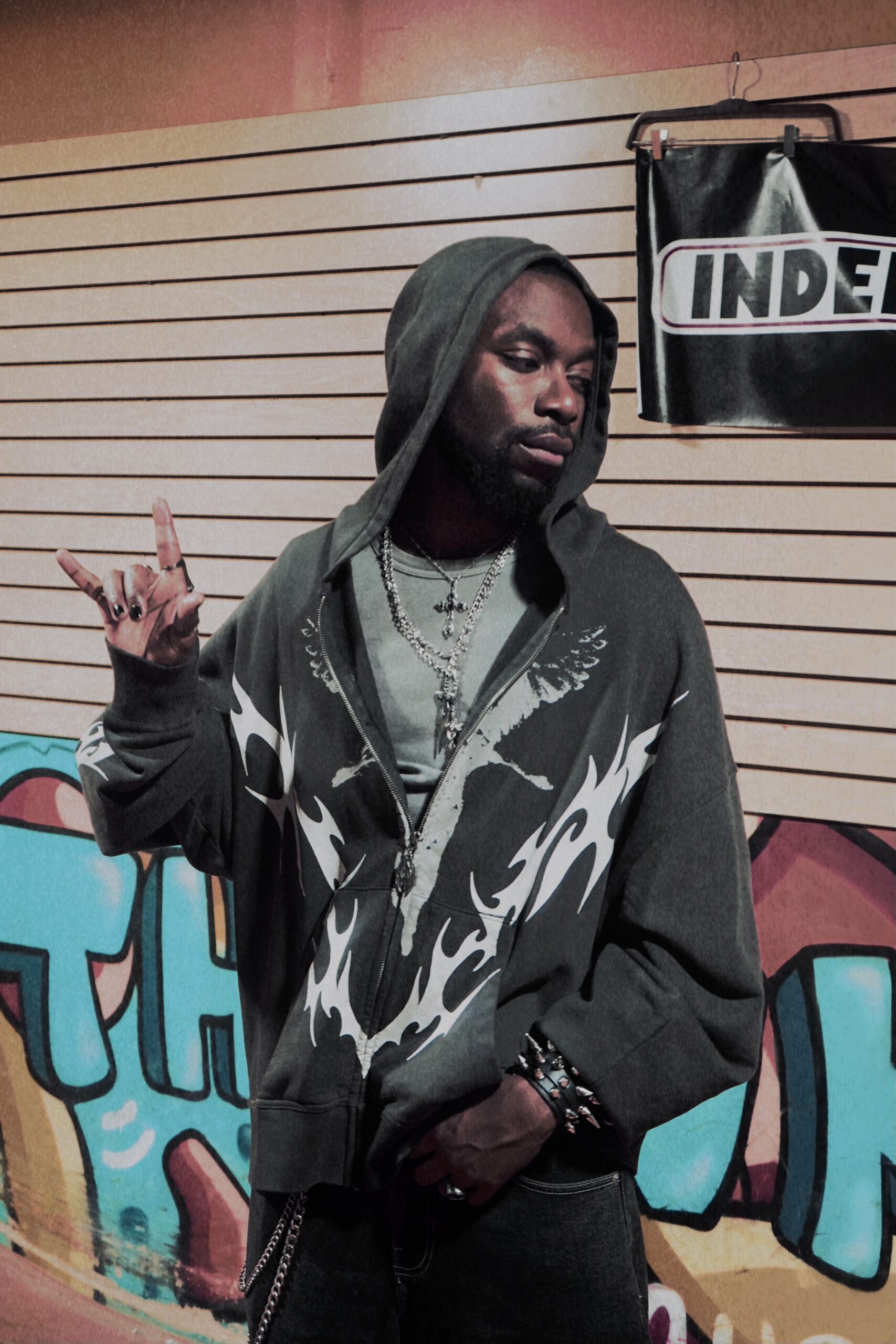There are some artists who chase trends, and there are those who quietly start movements. Gaise Baba belongs to the latter. While much of Nigeria’s gospel music scene is preoccupied with either the mega-church circuit or sanitized CCM aesthetics, Gaise is somewhere else entirely, somewhere between the street and the sanctuary, between streaming virality and spiritual depth.
And right now, he’s walking that tightrope with a calm confidence that only a man certain of his mission could manage.
In August 2024, he dropped “No Turning Back”, a single that seemed to capture the heart of a generation tired of shallow spirituality. Its bounce was Afro, its call was revival, and its impact was immediate. But the moment truly caught fire in May 2025, when the remix—featuring the ever-intense, oil-drenched voice of Lawrence Oyor was released. “No Turning Back II” was more than a sequel; it was a seismic jolt. And it’s already rippling alter calls and music charts.
But let’s be clear—Gaise Baba didn’t stumble into this moment. He’s been sowing these seeds for years.
Before the festival stages and viral charts, there was LightOut, a bold, soul-forward school outreach movement. Since 2017, LightOut has taken the gospel to over 15,000 secondary school students, not with dusty pamphlets or forced altar calls, but with music, drama, poetry, and unflinching authenticity. In an age where youth are skeptical of religion but hungry for meaning, Gaise Baba built a bridge and then danced across it in sneakers and ankara.
“Faith doesn’t have to be boring,” he often says. But he also knows it must be compelling. And everything he does, from his music videos to his festival stage designs, echoes that conviction.
In 2019, Gaise founded the Aramanda Festival, an audacious blend of Christian music, youth culture, and art. Think of it as Coachella for the kingdom-minded. After a pandemic-induced hiatus, Aramanda made its grand return in 2023 at the Landmark Centre in Lagos. It was colorful, contemporary, and unapologetically spiritual.
With over 25 acts including Greatman Takit and Angeloh, the festival reminded everyone that gospel music isn’t just a genre—it’s a force. And Gaise Baba, its chief curator, understands how to package holiness with hype.
What’s most fascinating about Gaise’s current moment is how “No Turning Back 11” hit not only the faithful but also the fringes. The remix with Lawrence Oyor, a minister whose chants have become revival staples across campuses and prayer rooms, did something unexpected: it trended. On TikTok. On Reels. On Spotify’s gospel and non-gospel playlists alike.
But the virality wasn’t a marketing gimmick, it was conviction in audio form. Gaise isn’t watering down the message to go mainstream; he’s simply making the message undeniable. His songs are catchy, but they’re confrontational too, sneaking theology into your spirit with every hook.
In a country where gospel music often gets boxed into conservative formats, Gaise Baba is radically reimagining what consecration sounds like in an Afro-urban world. He’s not here to compete with Afrobeats stars; he’s here to remind them, and us, that the spirit can move with a bassline.
In Gaise Baba’s hands, the gospel isn’t just heard, it’s felt. It’s danced to. It’s screamed in a prayer room at midnight and blasted through headphones during rush hour.
If there’s a renaissance brewing in Nigerian gospel music, Gaise isn’t just a participant, he’s a pioneer.
And with the way “No Turning Back” is spreading, we might all be headed somewhere higher—with no turning back.




